President Tetlow Joins School in Student Life Council
On Wednesday, Oct. 19, Rose Hill’s monthly Student Life Council (SLC) was held in The Great Hall with special guest President Tania Tetlow.
Wednesday’s SLC was the first attended by the new president, who fielded questions from students regarding, for the most part, Fordham’s recent COVID-19 vaccine booster health requirement. The town hall meeting also included members of the United Student Government (USG), Residential Housing Association (RHA), Commuting Students Association (CSA), Office for Student Involvement (OSI), Office of Multicultural Affairs (OMA) and administrators.
The meeting, commenced by RHA Vice President Kendra Kleintop, GSB ’24, began with general introductions from the council attendees. This was followed by an introduction from Tetlow, who remarked on her history with student leadership and law education.
Public agenda items were limited to allow Tetlow time to answer student questions.
Deborah Abesanjo, FCRH ’26, raised concerns regarding the lack of air conditioners in some first-year dorm halls, as well as the “classism” inherent in having to apply to certain Integrated Learning Communities (ILCs) like Loyola Hall and Queen’s Court. Tetlow ended up responding to the latter concern. “You don’t want ILCs to be totally random,” Tetlow said. “It’s less about having the best rooms and more about creating communities … ‘res life’ is not just about where you live or who you’re in a hall with, but about making ‘res life’ a function of how you learn.”
Following the last call for public agenda questions, the council moved towards the pre-submitted written questions for Tetlow. In response to a question about what it is like to be the first woman and layperson president, Tetlow responded, “It’s more jarring for everyone else than me.” She spoke to the intimidation she has felt as she has been introduced to the school’s inner workings, but emphasized the need for self-care and confidence: “Practicing having courage is like having a muscle that gets stronger.”
A question regarding the Fordham core curriculum was brought up by a Gabelli School of Business student who said they felt the classes took away from their career-oriented courses. Tetlow defended the core curriculum and said, “[The administrators] also think about being nimble. I think that if we focus more on skills than courses, then business students will understand.” Tetlow did however note that it can be hard for some students to pay for a Fordham education that consists of two years of core classes.
A question was read out to Tetlow concerning ensuring minority students have easy access to academic and social resources at a predominantly white institution (PWI). Tetlow drew attention on Fordham’s retention rates for first-year students, and the fact that there is “no disparity” between white and non-white students. Expanding on graduation rates, Tetlow said that “looking closely at that data…it’s not about checking boxes, but being equitable. If we chose you, you need to know you belong here.”
At this point, USG Executive President Santiago Vidal mentioned the influx of international students at Fordham following the pandemic. “It’s really good to see upward trends in the new classes,” Vidal said. “I’m really happy to hear that.”
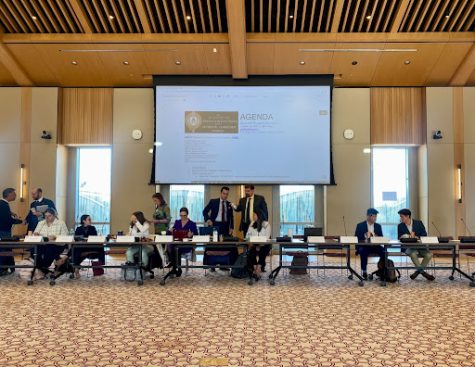
In response to a question asking what work was being done to accommodate the interests of Fordham adjunct faculty in the Fordham Faculty Union, Tetlow mentioned that there have already been 24 meetings between members and administrators. “It’s about trying to keep our costs down” for students, Tetlow said. Though acknowledging the divisions in higher education between tenured-track and non-tenured-track educators, Tetlow told students in the audience, “We’re trying to really balance giving you what you deserve … at a price that you can afford and knowing both of those are under constraints.”
Tetlow also explained that Fordham pays adjunct faculty “basically more than anyone else in the New York area” outside of schools with significantly higher budgets like NYU and Columbia University. “Our employees are dealing with the inflation rate like you are,” Tetlow said, “but we aren’t going to charge you that rate plus tuition increases to pay for them.”
Interim Associate Dean for Student Support & Academic Initiatives Patricio Meneses subsequently asked Tetlow to explain the nuances of Fordham’s endowment, which hit one billion dollars for the first time last year. “We hear about endowments,” Meneses said, “but can you point out to students how endowments work?” Meneses cited students who might wonder whether Fordham has more money to go around than they show.
Tetlow then explained that Fordham’s endowment functions more like savings in the bank, from which Fordham draws interest: “We live off the interest of an endowment forever … 181 years ago Fordham put money in the bank rather than using it all up, and the minute we spend that endowment … we have less income.” According to Tetlow, about 3% of Fordham’s annual budget is actually covered by the endowment. “If we spent the endowment on us today we would be permanently making it harder for Fordham going forward,” she said.
USG Vice President of Student Life Cole Mullins, FCRH ’24, raised concerns regarding how far into the holiday season finals are scheduled. Tetlow responded that she was in the middle of talking about changing that schedule to be more equitable for out-of-state students. “I’m gonna check on that,” Tetlow said. “Particularly with students for whom that plane trip home is a big expense … it’s very hard.”
The final topic of the meeting was the COVID-19 booster requirement. The first question read out asked why Fordham “waited 25 days after the CDC recommendations came out to require the booster.” Tetlow’s response to this was short. “Fordham has been consistent in requiring up-to-date vaccines” since the beginning of 2021, Tetlow said. “The delay was just in repeating that requirement, if anyone was confused about that. I think the clarity was there going back to the very first booster.” She also mentioned that Fordham “[needs] to keep up to date, and that has been consistent all along and very public.”
In answering why Fordham was one of the few schools to require the vaccine booster, Tetlow responded that those schools mostly required masking in lieu of boosters; she explained that to keep Fordham’s in-person experience alive, the booster was necessary.
She explained that she understands “that desire to move on and not think about it again,” but in response to those who want to move on, she said, “I personally disagree, but respect very much people’s views.”
In Tetlow’s final statements regarding the booster, she said that students should want to get the booster for the sake of others, even if they themselves feel they will be safe if they contract COVID-19.
“It is critical for us to protect our immunocompromised students,” Tetlow said. “While students are young, a lot of your faculty and staff are not…it’s about that sense of caring more broadly for the community.”
When a student raised concerns about the mRNA biotechnology used to create the vaccine, Tetlow recommended they read the book “The Code Breaker” by Walter Isaacson. “The mRNA tech has been around for a decade,” Tetlow said. “This booster is a slight tweaking of the first vaccine, which has undergone so much trial. They don’t do massive tests on flu shots every time they update it.”
Finally, Tetlow stated that, “The reality in the world is, while we feel like we have a right to do what we want to do and not have it affect others … the reality is that it does.”
Assistant Vice President and Dean of Student Services at Fordham University Keith Eldridge added that students who neither receive the vaccine nor are granted an exemption by Nov. 1 “will be restricted from campus.”
The SLC town hall concluded, after a few short updates from Dean Charles Clency regarding the lower levels of student intoxication on campus compared to this point last year.
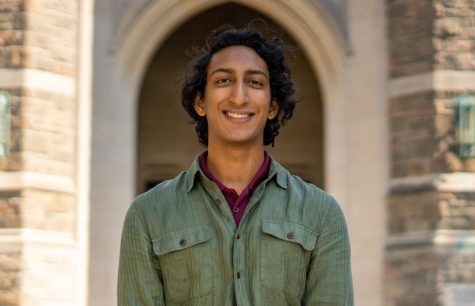
Hanif Amanullah is a junior from Austin, Tex., majoring in international studies, whose passion for news writing and multimedia led him to the Ram. Hanif...



































































































































































































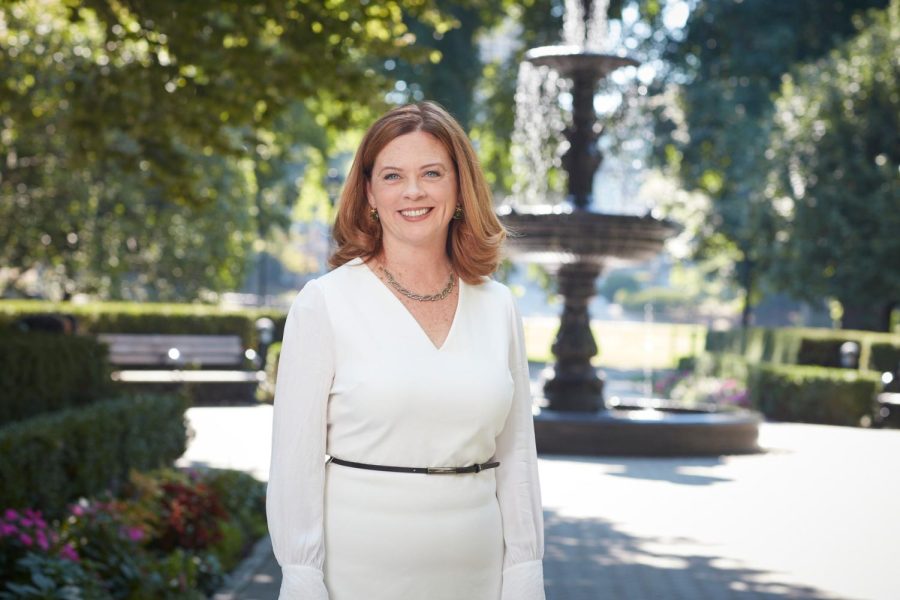




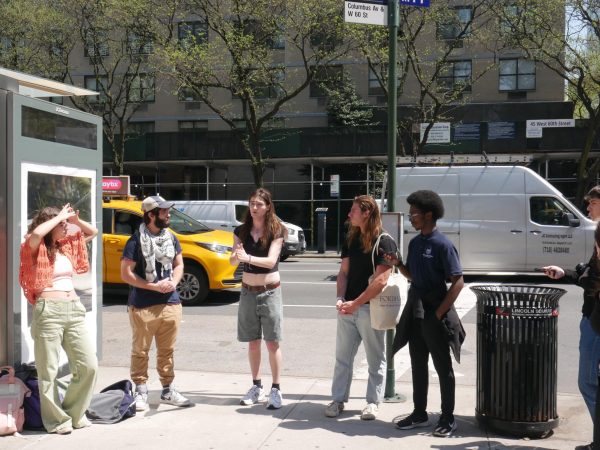
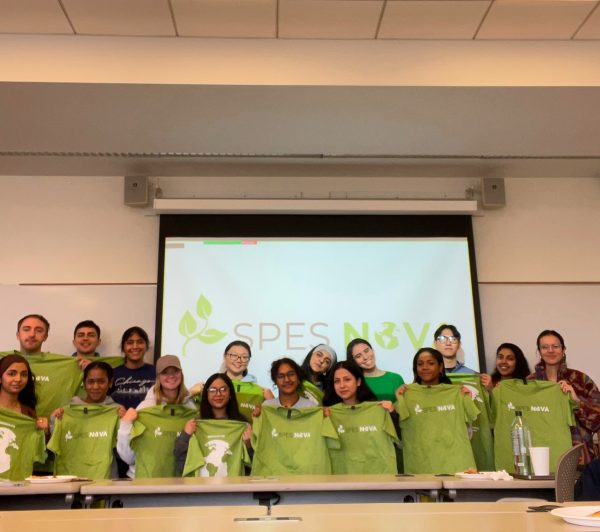
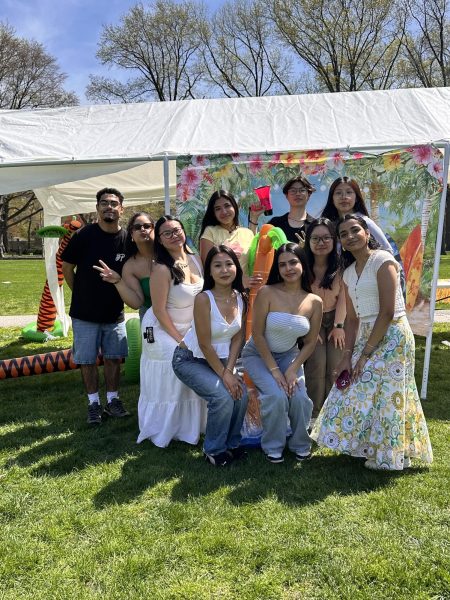
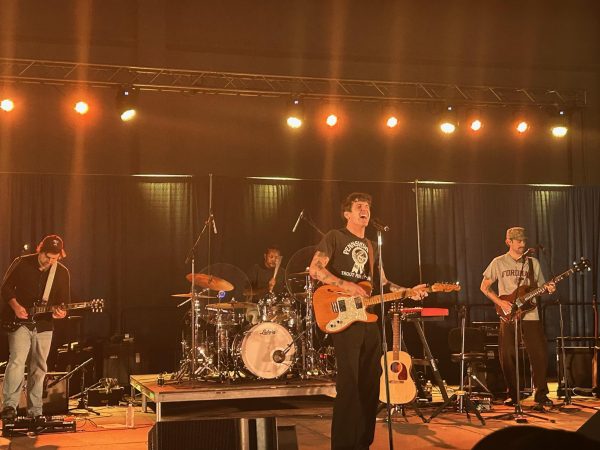
ScaredStudent • Oct 30, 2022 at 4:47 pm
I was so excited to have our first female president. Now I’m just worried that she does not really care about our health.
I’m watching all of my friends get the booster –during Mid-Terms—and getting so sick.
Why am I being sacrificed so she can make an unnecessary stand?
AG • Oct 27, 2022 at 9:00 pm
Regarding the comments made by Tetlow about reasons for requiring further booster mandates, it seems that scientific studies, logic and facts are no longer necessary for anyone in power who mandates anything. Every single reason given is a well-repeated phrase that has long been proved false or at least mostly false, yet they’re dished out like last Halloween’s candy because there is no check on those holding the words and the power. What other requirements can we expect next? And what will the reasons for those be?
Armando De Las Villas • Oct 27, 2022 at 7:36 pm
It’s a shame that a leader of an institution that prides itself on social justice and the plight of the oppressed is actually the oppressor when it comes to booster choice. Forcing a risky vaccine on students and employees to remain at F U is medical coercion which is a major civil and human rights abuse.
It would be the height of hypocrisy and double standard if Tetlow and her confederates at F U were for reproductive “choice”, but intolerant and Stalinist when it came to allowing students and employees their fundamental human right in exercising pro choice over a dangerous vaccine.
The stage is being set for Fordham in the 21st century. It can choose to continue its progressive Catholic mission, or it can become the bully and be on the wrong side of science, history, and human rights.
Saint Ignatius, Dorothy Day, St. Maximilian Kolbe, Edith Stein of Auschwitz, all Catholic champions of justice would be appalled at your tyrannical actions.
What’s it gonna be Tetlow? A movement against these vaccines is growing within F U. Parents and students are organizing for peaceful and lawful action. The ball is in your court, and the whole world is waking up to the harmful effects of boosters, and the people are watching!
Fordham Together • Oct 27, 2022 at 3:59 am
It’s sad that President Tetlow remains unaware of the CDC’s clear statements over the past year that the injection does not stop infection, nor does it have any ability to stop transmission. These facts nullify Tetlow’s argument that the injection is needed to “protect others.” These facts have already nullified all injection mandates at every other university in New York State.
It’s also extremely disturbing that President Tetlow is pretending not to be aware that the cancel culture Fordham has created on this issue has a direct effect on most students’ willingness to speak up.
Hear this, President Tetlow: Patronizing and social shaming students for standing up for their Constitutional rights is repression and in no way indicates the feelings of most Fordham students. Most of our students are terrified of the social consequences of speaking out, as are many staff members. Is this the open-minded, diverse perspective climate that you intend? Have you taken a moment out of your busy schedule to read any of the peer reviewed studies that have come out in the past six months, or seen the Pfizer admission that the injection was never tested nor proven to stop transmission? Are you aware that the injection has very real permanent and life-altering side effects which outweigh its benefits for the Fordham community?
Despite the templated rigid responses that we continue to get from you, Mr. Eldredge, and the school, we continue to urge you to immediately revoke the bivalent mandate so that Fordham isn’t viewed by the world as the only school still following erroneous and harmful 2020 narratives.
Mike • Oct 27, 2022 at 3:40 pm
AGREE!